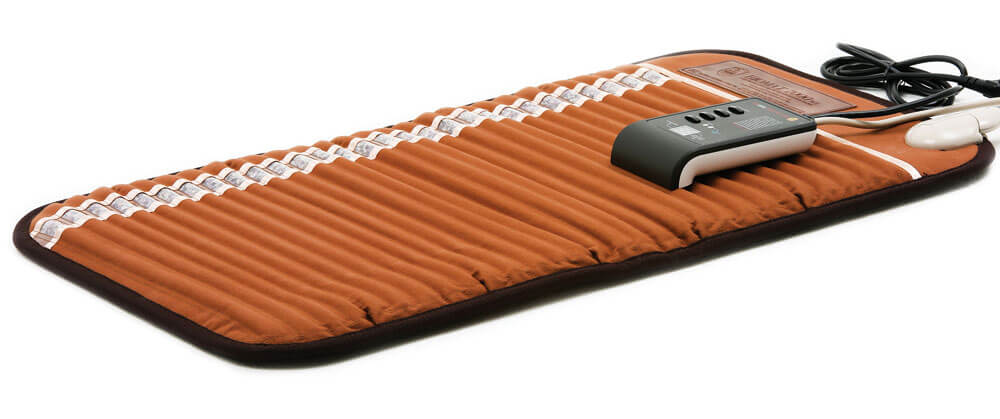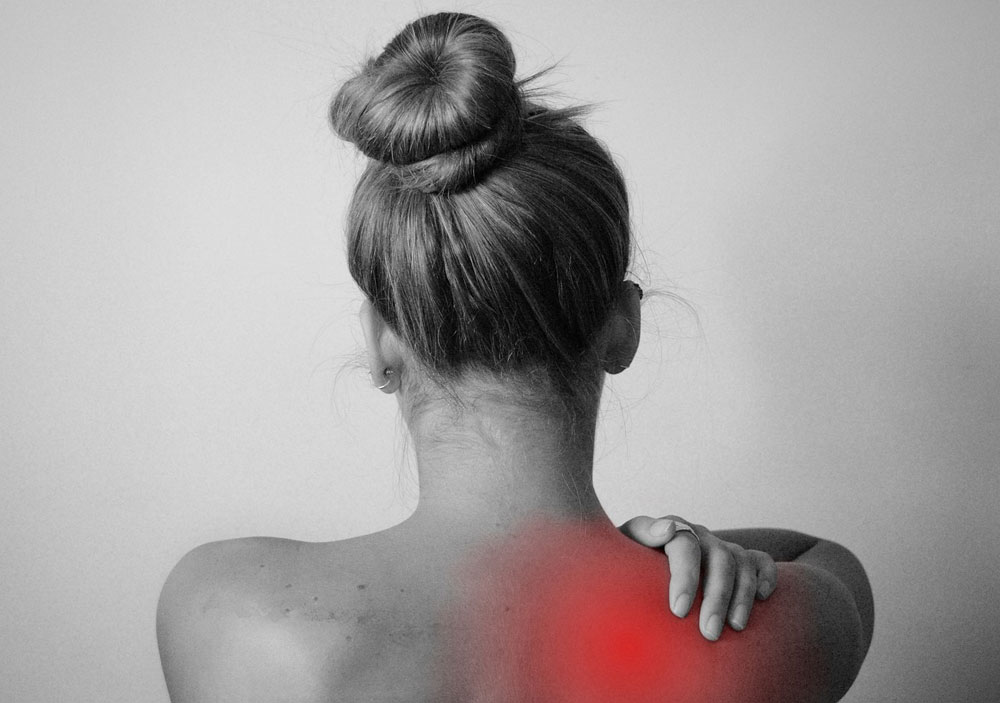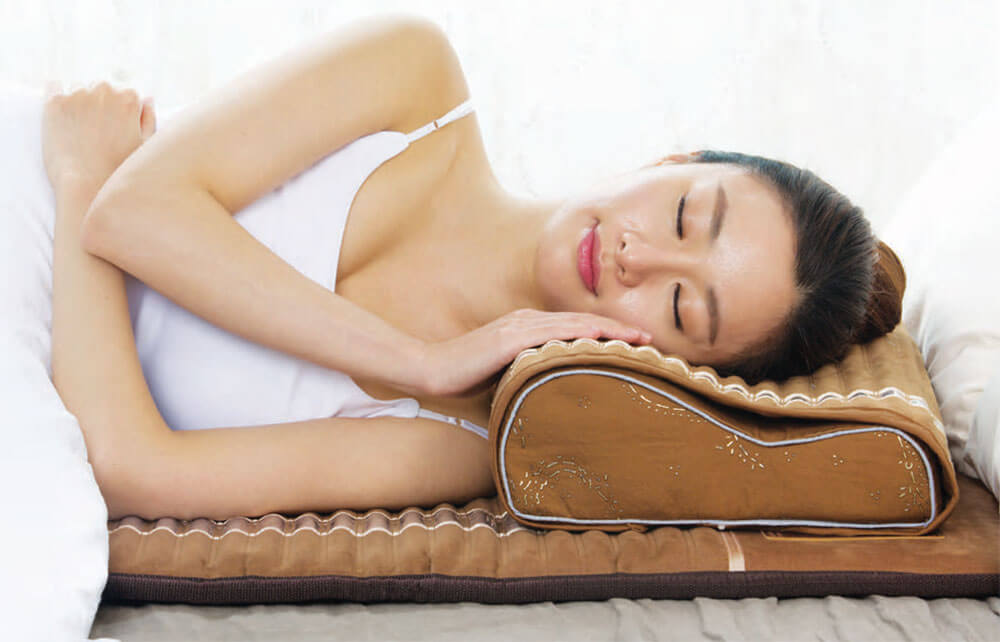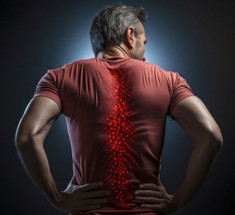Posted by Biomatstores.com on 1st Oct 2023
How the Richway Biomat Can Help Relax Your Muscles and Improve Your Health
The Richway Biomat is a revolutionary tool that harnesses the power of amethyst, far infrared rays, and negative ions to deeply relax and rejuvenate your muscles. If you're looking to unlock the true potential of muscle relaxation, the Richway Biomat is your answer. In this article, we will explore the muscle-relaxing benefits of this incredible device, how it works, and how it benefits the body and mind.
Before we begin, it is important to remember that the Richway Amethyst Biomat is an FDA-approved medical device for the following:
The temporary relief of minor muscle pain and joint pain and stiffness; the temporary relief of joint pain associated with arthritis; the temporary relief of muscle spasms, minor sprains and strains, and minor muscular back pain; the relaxation of muscles; and the temporary increase of local circulation where applied.
What Is The Richway Biomat And How Does It Work?
The Richway Biomat is a revolutionary therapeutic device that combines the benefits of far infrared rays, negative ions, and amethyst crystals to provide a wide range of health benefits. It is a state-of-the-art technology that harnesses the power of nature to heal the human body at a cellular level.
At its core, the Biomat is a mat that is embedded with amethyst crystals. These crystals have been used for centuries for their healing properties and are known for their ability to emit far infrared rays. The mat produces artificial far infrared rays that heat the amethyst stones. As these light waves travel through the amethyst channels, they are transformed into natural far infrared rays that are 200 times stronger and longer than normal, allowing them to penetrate the body up to 6-8 inches.
Far infrared rays are a type of electromagnetic radiation that is invisible to the naked eye but can penetrate deep into the body. When these infrared waves are absorbed, they stimulate the production of heat and increase blood circulation. This infrared technology helps to relax muscles, reduce inflammation, and relieve pain. Far infrared rays also promote detoxification by stimulating the sweat glands and aiding in the elimination of toxins from the body.
Negative ions, on the other hand, are molecules that have an extra electron with a negative charge. These ions are found in abundance in nature, particularly in places like waterfalls, forests, and beaches. Negative ions have a calming effect on the body and can help to reduce stress, improve mood, oxygenate the blood, act as antioxidants, and balance blood pH. The Richway Biomat produces negative ion therapy via a layer within the mat (ToCa layer, see the 17-layer construction of the Biomat). This therapy is based on Nobel Prize-winning research.
The Richway Biomat is used by a wide range of individuals, including athletes, healthcare professionals, and people seeking natural pain relief and relaxation. Massage therapists, acupuncturists, physical therapists, and cancer care professionals in particular find the soothing heat of the Biomat helpful in their practices. It can be used for various purposes, such as improving sleep, reducing stress, relieving muscle tension, and supporting overall health and wellness.

How Does the Richway Biomat Relax Muscles?
The Richway Biomat is a therapeutic device that utilizes a combination of far infrared rays, negative ions, and amethyst crystals to provide various health benefits, including muscle relaxation. Understanding the physiological mechanisms behind how the Biomat relaxes tense muscles can help us appreciate its effectiveness.
One of the key components of the Richway Biomat is far infrared rays (FIR). FIR is a type of electromagnetic radiation that has longer wavelengths than visible light. When the Biomat is heated, it emits these FIR waves, which can penetrate into the tissues of the body and deliver a deep heat that relaxes muscles. As the infrared therapy penetrates the muscles, it stimulates the production of nitric oxide. Nitric oxide is a molecule that acts as a vasodilator, meaning it widens the blood vessels. This increased blood flow to the muscles helps to deliver oxygen and nutrients more efficiently, which can aid in muscle relaxation and recovery.
Additionally, the Biomat also produces negative ions. Negative ions are molecules that contain an extra electron, and they are abundant in natural environments such as forests, waterfalls, and beaches. These negative ions can help balance the levels of serotonin in the body, a neurotransmitter that plays a role in mood and stress regulation. By increasing serotonin levels, negative ions can promote relaxation, reduce stress, and alleviate muscle tension.
What Is Muscle Tension And Why Is It Bad For Your Health?
Muscle tension refers to the involuntary contraction or tightening of muscles throughout the body. It can occur due to various factors, including stress, anxiety, physical exertion, poor posture, and repetitive movements. While some level of muscle tension is normal, chronic or excessive muscle tension can have detrimental effects on a person's overall health and well-being.
Firstly, knotted muscles can lead to physical discomfort and pain. Persistent muscle tension can cause headaches, backaches, neck and shoulder pain, and even migraines. This pain can be debilitating, affecting one's ability to perform daily activities and negatively impacting their quality of life.
Secondly, muscle tension can also lead to mental health issues. The physical discomfort caused by muscle tension can contribute to increased stress and anxiety levels. The constant pain and discomfort of tired muscles can make it difficult for individuals to relax and unwind, leading to heightened feelings of tension and distress.

Furthermore, chronic muscle tension can disrupt sleep patterns. The discomfort and pain can make it challenging to find a comfortable sleeping position, leading to difficulties falling asleep or staying asleep throughout the night. This can result in sleep deprivation, which can negatively affect cognitive function, mood, and overall well-being.
Additionally, tense muscles can impair circulation and blood flow. The sustained contraction of muscles can restrict the flow of oxygen and nutrients to the tissues, leading to muscle fatigue, weakness, and decreased mobility. Poor circulation can also contribute to the development of conditions such as varicose veins and deep vein thrombosis.
Moreover, muscle tension can impact posture and musculoskeletal alignment. The continuous contraction of muscles can cause imbalances and misalignments, leading to postural issues and an increased risk of injury. Poor posture can also contribute to the development of conditions such as rounded shoulders, forward head posture, and spinal misalignment.
The Health Benefits of Relaxed Muscles
Reduced Stress
When our muscles are relaxed, it has a direct physiological and mental impact on reducing stress. Physiologically, relaxed muscles help to lower the production of stress hormones such as cortisol and adrenaline, which are responsible for the fight-or-flight response. When our muscles are tense, these stress hormones are released, leading to increased heart rate, blood pressure, and overall tension in the body. However, when our muscles are relaxed, the body is able to return to a state of equilibrium, reducing the physical symptoms of stress.
Mentally, relaxed muscles can also have a profound impact on reducing stress. When our muscles are tense, it can create a feedback loop where stressed minds perceive the tension and interpret it as a sign of danger or threat, further increasing stress levels. By intentionally relaxing our muscles, we send a signal to the brain that it is safe to calm down, which can help to reduce anxiety and promote a sense of calmness and well-being. Additionally, relaxed muscles can improve sleep quality, enhance concentration, and promote a more positive mindset, all of which contribute to reduced stress levels. Overall, the state of relaxation in our muscles plays a crucial role in reducing stress both physiologically and mentally.
Improved Sleep
Relaxed muscles play a crucial role in promoting improved sleep both physiologically and mentally. Physiologically, when muscles are relaxed, blood circulation improves, allowing for better oxygen and nutrient delivery to the body's tissues. This enhanced blood flow helps in repairing and rejuvenating muscles, reducing any discomfort or pain that may hinder sleep. Additionally, relaxed muscles promote a decrease in heart rate and blood pressure, signaling the body to shift into a state of relaxation and restfulness. Mentally, relaxed muscles release tension and stress, allowing the mind to unwind and let go of intrusive thoughts or worries that often disrupt sleep. This state of physical relaxation enables a calm and peaceful mental state, facilitating a deeper and more restful sleep.

Increased Flexibility
When muscles are relaxed, they are able to stretch and elongate more easily, leading to increased flexibility. Relaxed muscles have a lower resistance to movement, allowing for a greater range of motion. This is because tense or tight muscles can restrict movement and limit flexibility. When muscles are relaxed, they are less likely to be strained or injured during stretching exercises. Additionally, relaxed muscles promote better blood flow and circulation, which helps to improve overall muscle health and flexibility. Regular stretching and relaxation techniques can help to maintain and improve flexibility over time.
Reduced Pain and Discomfort
Relaxed muscles play a crucial role in reducing pain and discomfort both physiologically and mentally. Physiologically, when muscles are tense or contracted, they can create pressure and tension on surrounding tissues and nerves, leading to pain. By promoting muscle relaxation, blood flow and oxygenation to the affected area improve, reducing inflammation and promoting healing. Additionally, relaxed muscles allow for proper alignment and range of motion, reducing strain on joints and preventing further injury.
Mentally, relaxed muscles can alleviate stress and anxiety, which often contribute to physical pain. When muscles are tense, they can trigger a stress response in the body, increasing cortisol levels and exacerbating pain sensations. By promoting muscle relaxation through techniques such as deep breathing, meditation, or gentle stretching, individuals can experience a sense of calmness and relief, which can positively impact their overall well-being. Moreover, relaxed muscles can improve sleep quality, allowing the body to repair and rejuvenate, further reducing pain and discomfort. Overall, the connection between relaxed muscles and reduced pain and discomfort is multifaceted, encompassing both physiological and mental aspects.
Improved Blood Circulation
When muscles are relaxed, it increases blood circulation throughout the body. The relaxation of muscles reduces tension and constriction, which can often impede the flow of blood. When muscles are tense or contracted, it can restrict blood vessels and hinder the smooth movement of blood. However, when muscles are relaxed, blood vessels can dilate and expand, allowing for increased blood flow. This enhanced circulation delivers oxygen and nutrients more efficiently to various parts of the body, including the organs, tissues, and cells. This oxygen-rich blood helps muscles recover faster. Improved blood circulation also helps to remove waste products and toxins from the body, promoting overall health and well-being. Additionally, relaxed muscles can help alleviate pain and reduce inflammation, further supporting optimal blood circulation.
Increased Tissue Oxygen
When muscles are relaxed, it allows for improved blood flow and circulation throughout the body. This increased blood flow brings more oxygen to the muscle tissue. Oxygen is essential for the proper functioning and metabolism of cells. When muscles are tense or contracted, blood vessels can become constricted, restricting the flow of oxygenated blood to the tissues. However, when muscles are relaxed, blood vessels dilate, allowing for a greater supply of oxygen to reach the tissues and all body systems. This increased oxygen delivery promotes cellular respiration and energy production, enabling the tissues to function optimally. Overall, relaxed muscles facilitate improved oxygenation of the tissues, supporting their health and overall well-being.
Lowered Blood Pressure
When muscles are relaxed, it leads to lowered blood pressure through a combination of physiological factors. Firstly, relaxed muscles reduce the resistance to blood flow within the blood vessels, allowing blood to flow more freely and easily. This decrease in resistance lowers the overall pressure exerted on the walls of the blood vessels, leading to a decrease in blood pressure. Additionally, when muscles are relaxed, the body enters a state of relaxation, which activates the parasympathetic nervous system. This activation results in the release of neurotransmitters such as acetylcholine, which promotes vasodilation and decreases heart rate, further contributing to the lowering of blood pressure. Overall, relaxed muscles create a favorable environment for optimal blood flow and circulation, resulting in lowered blood pressure.
Enhanced Digestion
When muscles in the body are relaxed, it can have a positive impact on digestion. The digestive system is controlled by a complex network of muscles, including the smooth muscles in the stomach and intestines. When these muscles are relaxed, it allows for smoother and more efficient movement of food through the digestive tract.
Relaxed muscles in the stomach and intestines can help prevent issues such as bloating, gas, and constipation. When these muscles are tense or contracted, it can lead to a slower digestive process and potential discomfort.
Additionally, relaxation can reduce stress and tension in the body, which can also have a positive effect on digestion. When the body is in a state of relaxation, it can better absorb nutrients from food and eliminate waste more effectively.
Boosted Immune System
When muscles are relaxed, it has a profound impact on both the physiological and mental aspects of the body, leading to a boosted immune system. Physiologically, relaxation of muscles reduces the production of stress hormones, such as cortisol, which can suppress the immune system. It also allows for improved blood circulation and lymphatic flow, facilitating the delivery of oxygen and nutrients to cells while removing toxins and waste products. Mentally, relaxed muscles promote a sense of calmness and reduce anxiety and stress levels. This, in turn, decreases the production of stress hormones, further benefiting the immune system. Additionally, relaxation promotes better sleep, which is crucial for immune system regulation and overall well-being. Overall, relaxed muscles create a harmonious environment within the body, supporting a strong and resilient immune system.
Improved Posture
When our muscles are relaxed, they are able to function optimally and support our body's posture. Relaxed muscles allow for proper alignment of the spine and joints, reducing strain and tension on the muscles and ligaments. This improved alignment helps to distribute the weight of our body evenly, preventing excessive pressure on specific areas. Relaxed muscles also enable us to maintain a more upright posture, as they are not pulling or contracting in ways that can lead to slouching or rounded shoulders. Additionally, relaxed muscles promote better blood circulation, ensuring that the necessary nutrients and oxygen reach the muscles, promoting their overall health and flexibility. By keeping our muscles relaxed, we can achieve and maintain a correct posture, which is essential for good overall body mechanics and long-term musculoskeletal health.
Enhanced Mental Well-being
Relaxed muscles play a crucial role in enhancing mental well-being by promoting a state of calmness and reducing stress and tension in the body. When our muscles are relaxed, it sends signals to the brain that all is well, triggering a relaxation response. This response helps to lower the production of stress hormones like cortisol and adrenaline, which are known to negatively impact mental health. Additionally, relaxed muscles improve blood circulation, delivering more oxygen and nutrients to the brain, which can enhance cognitive function and boost mood for a healthier mind. By relieving physical tension, relaxed muscles also contribute to better sleep quality, which is essential for maintaining optimal mental well-being. Overall, relaxed muscles create a harmonious mind-body connection, promoting a sense of tranquility and improving mental health.

How the Biomat's Relaxation of Muscles Doubles Down On Healing
When muscles are relaxed, the benefits of infrared heat therapy and negative ion therapy are significantly increased. Both of these therapies have been known to provide numerous health benefits on their own, but when combined with muscle relaxation, their effects are further enhanced.
When the muscles are relaxed, they are more receptive to the Biomat's infrared heat, allowing for better absorption and distribution of the infrared energy. This leads to a more effective treatment, as the application of gentle warmth can reach deeper layers of tissue, promoting healing and reducing inflammation. Additionally, the increased circulation helps to flush out toxins and waste products from the muscles, further aiding in their relaxation and recovery.
Negative ion therapy, on the other hand, has been shown to have a positive impact on overall well-being, reducing stress, improving mood, and enhancing mental clarity. When the muscles are relaxed, the body is in a state of tranquility, making it more receptive to the effects of negative ions. The ions can penetrate the body more easily, promoting a greater sense of calm and relaxation. This can lead to reduced stress levels, improved sleep quality, and a boost in overall mood and mental well-being.
By achieving muscle relaxation with the Richway Biomat's infrared heat therapy and negative ion therapy, Biomat users can experience a multitude of health benefits. These therapies work synergistically to promote deep relaxation, pain relief, improved circulation, detoxification, stress reduction, and enhanced mental well-being. When muscles are relaxed, the body becomes more receptive to their effects, allowing for a more profound and transformative experience providing lasting relief in a natural way.


